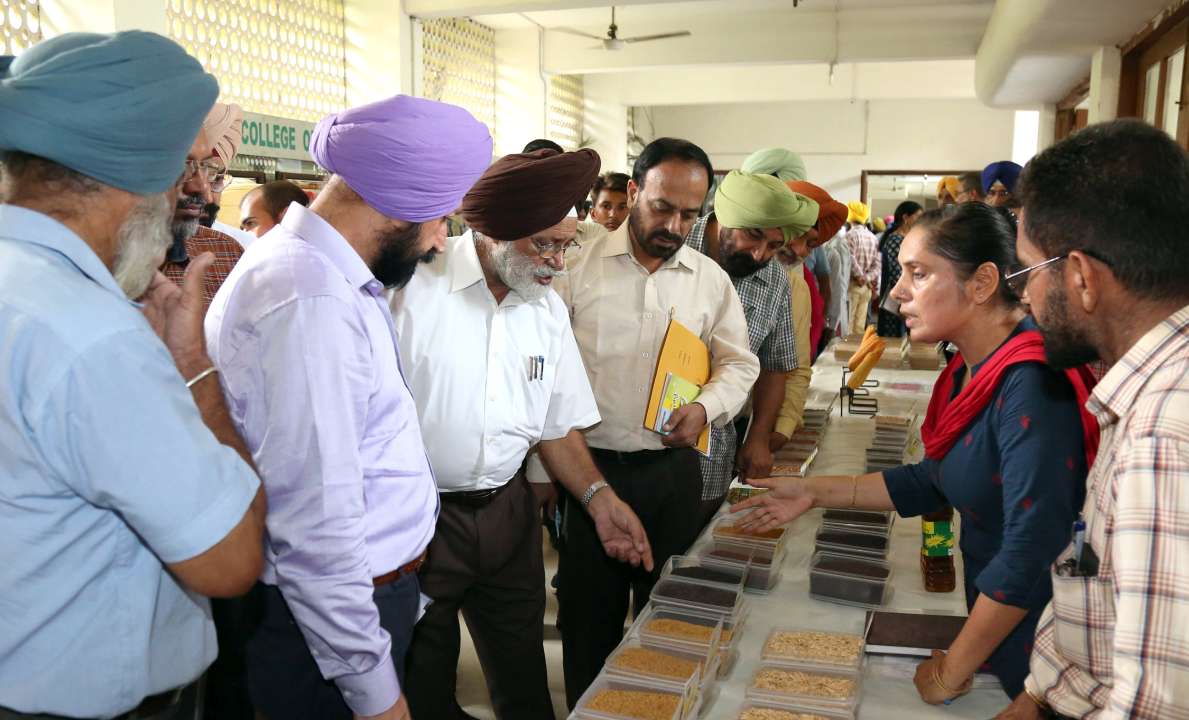Ludhiana, 1 September 2017
A two-day “Research and Extension Specialists’ Workshop for Rabi Crops” began at Punjab Agricultural University (PAU) today. The Joint Directors and Agriculture Development Officers from the State Department of Agriculture; Deputy/Associate Directors from Krishi Vigyan Kendras; District Extension Specialists; and University deans, directors and faculty attended the inaugural session.
In his inaugural address, the Chief Guest, Dr Baldev Singh Dhillon, Vice-Chancellor, PAU, congratulated the scientists and the agriculture officials for the highest paddy and cotton yield, and second highest wheat yield, obtained during the last year. He said, “The dedicated efforts of the scientists have enabled PAU to emerge as the Best State Agricultural University by ICAR, Second Best Agricultural University by Union Ministry of Human Resource Development and honoured by the Indian Society of Genetics and Plant Breeding.” He disclosed the PAU developed wheat varieties PBW 677 and PBW 725 have shown excellence performance at farmers’ fields and are being experimented in Bihar and West Bengal on a huge area. He further said the main focus of PAU’s research was on diversification in terms of bringing more area under alternate crops, promoting kitchen garden concept and processing among farmers. With the rising climatic challenges for basmati and paddy straw management, the Krishi Vigyan Kendras of Punjab can play an effective role in tackling these issues, he added.
Dr J.S. Bains, Director of Agriculture, Punjab, lauded the efforts of PAU wheat scientists in reviving the mega varieties (PBW 343 and PBW 550) and developing new varieties Unnat PBW 343 and Unnat PBW 550. He observed that inspite of change in rainfall pattern and dryness in cotton growing areas, jassid and whitefly were controlled effectively. “We are hopeful of increase in the cotton production this year as well,” he stated. The impact of increase in the prices of pesticides, fertilizers and tractors with the implementation of Goods and Services Tax (GST) needs to be studied, he stressed. Making a call for practicing climate smart agriculture, he underlined the need for developing high-yielding, less water requiring varieties and quality seed; promoting diversification; assuring marketing; strengthening agro-based industry, and promoting use of recommended agro-chemicals instead of branded ones. In view of Indian Prime Minister’s mission “More Crop, Per Drop” and “Doubling Farmer’s Income by 2022,” there is a need to lay thrust on maximizing production by minimizing use of natural resources, he added.
Dr Navtej Bains, Director of Research, PAU, said the newly developed varieties including Unnat PBW 343, Unnat PBW 550 and PBW Zn 1 of wheat; Giriraj of raya; TMB 37 of summer moong; OL 11 of oats; and BL 43 of berseem were subject to approval of State Variety Approval Committee. He also highlighted the production-protection technologies and farm machinery. Dr Bains said the University was reprioritizing its research programmes keeping in view the contemporary agri-issues.
Earlier, in his welcome remarks, Dr S.S. Kukal, Dean, College of Agriculture, said the workshop would go a long way in providing solutions to farm challenges.
Dr Ashok Kumar, Director of Extension Education, said, “The workshop helps in receiving feedback from extension functionaries and devising research and extension activities as per need.” Later, he proposed the vote of thanks.
On the occasion, an exhibition highlighting various crop varieties and their production-protection technologies was put up by different departments of PAU.










